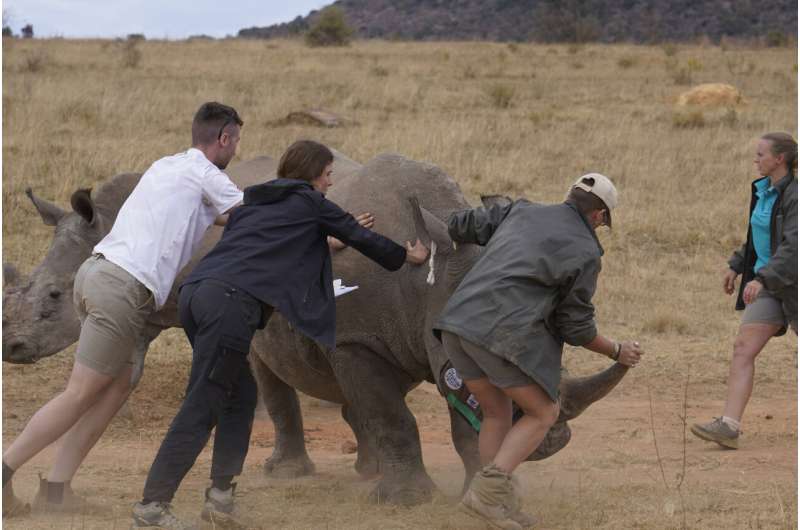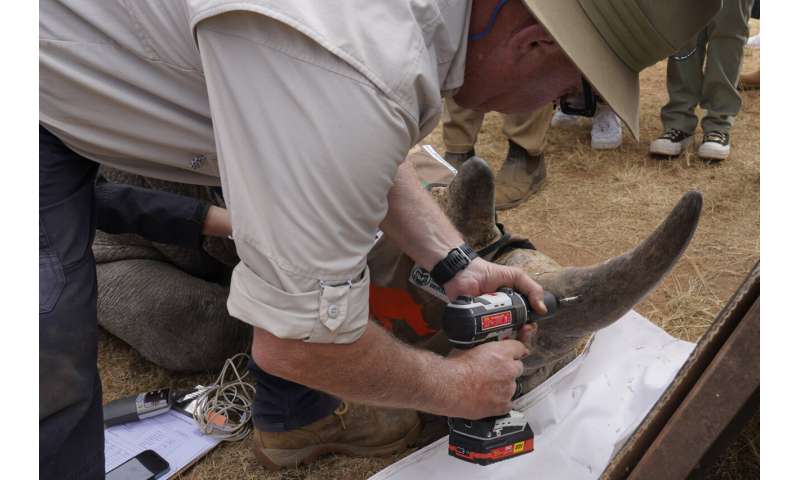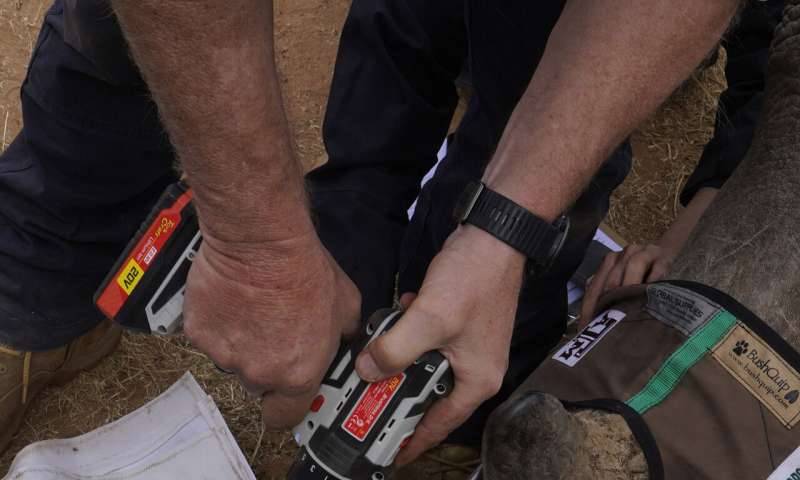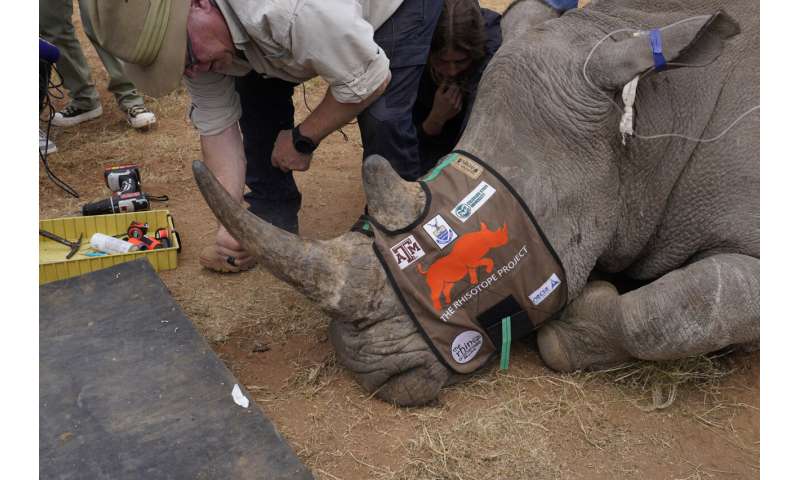Researchers in South Africa have injected radioactive material into the horns of 20 rhinos as part of a research project aimed at reducing poaching.
The idea is that radiation detectors already in place at national borders would detect the horns and help authorities arrest poachers and traffickers.
The research, which has included the participation of veterinarians and nuclear experts, begins with the animal being tranquilized before a hole is drilled into its horn and the nuclear material carefully inserted. This week, researchers at the University of the Witwatersrand ‘s Radiation and Health Physics Unit in South Africa injected 20 live rhinos with these isotopes. They hope the process can be replicated to save other wild species vulnerable to poaching—like elephants and pangolins.
“We are doing this because it makes it significantly easier to intercept these horns as they are being trafficked over international borders, because there is a global network of radiation monitors that have been designed to prevent nuclear terrorism,” said Professor James Larkin, who heads the project. “And we’re piggybacking on the back of that.”
According to figures by the International Union for Conservation of Nature, an international conservation body, the global rhino population stood at around 500,000 at the beginning of the 20th century. It now stands at around 27,000 due to continued demand for rhino horns on the black market.

South Africa has the largest population of rhinos with an estimated 16,000, making it a hotspot with over 500 rhinos killed yearly.
The country experienced a significant decline in rhino poaching around 2020 at the height of the COVID-19 pandemic, but the numbers increased when virus lockdown restrictions were eased.
“We’ve got to do something new and something different to reduce poaching. You know, you’ll see the figures they’ve already started going up,” said Larkin. “During COVID, they all went down but post COVID we are now starting to see those numbers go up again.”
While the idea has received support from some in the industry, the researchers have had to jump many ethical hurdles posed by critics of their methodology.
Pelham Jones, chairperson of the Private Rhino Owners Association, is among the critics of the proposed method and doubts that it would effectively deter poachers and traffickers.
-

Professor James Larkin drills a hole into a rhinos horn to insert isotopes at a rhino orphanage in the country’s northern province of Limpopo, Tuesday, June 25, 2024. Researchers have started the final phase of a research project aimed at reducing rhino poaching by inserting radioisotopes into rhino horns to devalue one of the most highly trafficked wildlife commodities. Credit: AP Photo/Denis Farrell
-

Professor James Larkin drills a hole into a rhinos horn to insert isotopes at a rhino orphanage in the country’s northern province of Limpopo, Tuesday, June 25, 2024. Researchers have started the final phase of a research project aimed at reducing rhino poaching by inserting radioisotopes into rhino horns to devalue one of the most highly trafficked wildlife commodities. Credit: AP Photo/Denis Farrell
-

Professor James Larkin performs a procedure where isotopes are placed into a rhino’s at a rhino orphanage in the country’s northern province of Limpopo, Tuesday, June 25, 2024. Researchers have started the final phase of a research project aimed at reducing rhino poaching by inserting radioisotopes into rhino horns to devalue one of the most highly trafficked wildlife commodities. Credit: AP Photo/Denis Farrell
“(Poachers) have worked out other ways of moving rhino horn out of the country, out of the continent or off the continent, not through traditional border crossings,” he said. “They bypass the border crossings because they know that is the area of the highest risk of confiscation or interception.”
Professor Nithaya Chetty, dean of the science faculty at Witwatersrand, said the dosage of the radioactivity is very low and its potential negative impact on the animal was tested extensively.
© 2024 The Associated Press. All rights reserved. This material may not be published, broadcast, rewritten or redistributed without permission.
Citation:
South African researchers test use of nuclear technology to curb rhino poaching (2024, June 29)
retrieved 29 June 2024
from https://phys.org/news/2024-06-south-african-nuclear-technology-curb.html
This document is subject to copyright. Apart from any fair dealing for the purpose of private study or research, no
part may be reproduced without the written permission. The content is provided for information purposes only.

